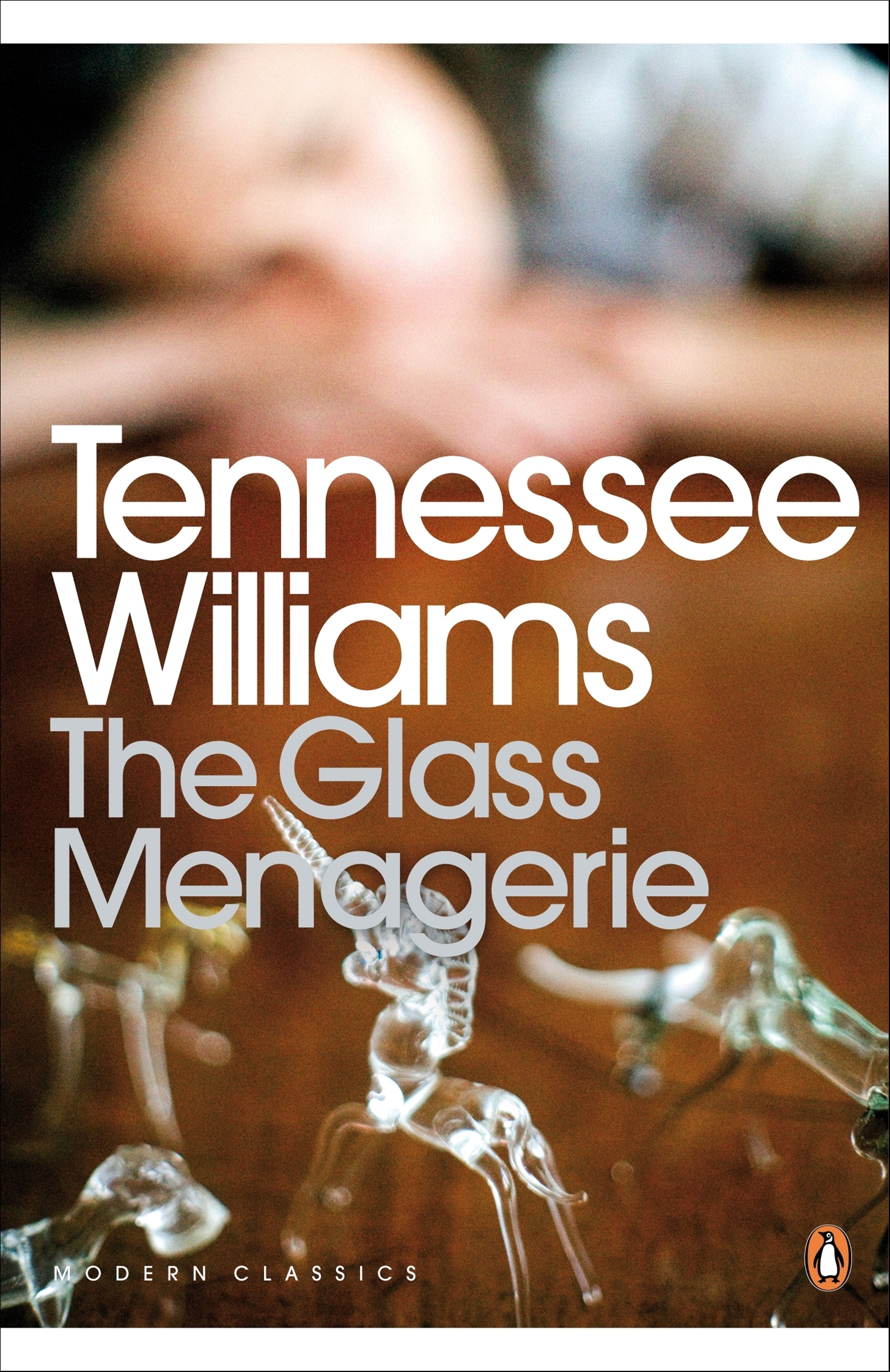 Book Twenty-Six of the Book-a-Week Quest
Book Twenty-Six of the Book-a-Week QuestThe Glass Menagerie
by Tennessee Williams (1944)
Play #2 in the Quest...this one by a famous American playwright whom I had never read before. Overall, it was fine, but I didn't feel like it was overly deep.
The play has four characters only -- Tom Wingfield is the play's narrator and the son of Amanda. While Tom longs to be a writer, he is stuck working in a warehouse to help support his mother since his father walked out on them. Amanda is incredibly overbearing and wants her children to live a better life than her. However, she is obnoxious in her desires for her kids. Amanda's other child, Laura, needs to wear a brace on her leg and it has caused her to be shy throughout her whole life. While her mother wants to find her a man, Laura would rather sit at home and stare at her collection of glass animals. The fourth character is Jim, a gentleman caller who comes to the Wingfield home one evening. Amanda hopes that Jim will fall in love with Laura, sweep her off her feet, and create a better life for her daughter. Unfortunately, things don't go as planned.
To me, the symbolism I see is that Laura and Tom are like caged animals, pinned by the idealistic dreams that Amanda has set up for them. I mean, even their last name "Wingfield" conjures up the notion of flight and Tom wants to fly away, while Laura is much too nervous to do so. That symbolism is fine (and I'm sure there's much more in the play, too), but I didn't find it overly deep or interesting.
Apparently, this is a somewhat autobiograhical story for Williams, who takes on the role of Tom here. He longed to be a writer and ran away from his family in order to pursue that dream. That's all fine and good, but this may be a play that you have to see performed to fully appreciate. I felt that the dialogue seemed a little forced and the way Williams set the stage (with some incredibly odd "projections" that oddly [and unnecessarily] tell the audience what is going on right in front them) didn't really "work" in written form. Should a revival of the play take place in the area, I might venture out to take a look at it. But for the most part, I'm not enthusiastic about this one.
The play has four characters only -- Tom Wingfield is the play's narrator and the son of Amanda. While Tom longs to be a writer, he is stuck working in a warehouse to help support his mother since his father walked out on them. Amanda is incredibly overbearing and wants her children to live a better life than her. However, she is obnoxious in her desires for her kids. Amanda's other child, Laura, needs to wear a brace on her leg and it has caused her to be shy throughout her whole life. While her mother wants to find her a man, Laura would rather sit at home and stare at her collection of glass animals. The fourth character is Jim, a gentleman caller who comes to the Wingfield home one evening. Amanda hopes that Jim will fall in love with Laura, sweep her off her feet, and create a better life for her daughter. Unfortunately, things don't go as planned.
To me, the symbolism I see is that Laura and Tom are like caged animals, pinned by the idealistic dreams that Amanda has set up for them. I mean, even their last name "Wingfield" conjures up the notion of flight and Tom wants to fly away, while Laura is much too nervous to do so. That symbolism is fine (and I'm sure there's much more in the play, too), but I didn't find it overly deep or interesting.
Apparently, this is a somewhat autobiograhical story for Williams, who takes on the role of Tom here. He longed to be a writer and ran away from his family in order to pursue that dream. That's all fine and good, but this may be a play that you have to see performed to fully appreciate. I felt that the dialogue seemed a little forced and the way Williams set the stage (with some incredibly odd "projections" that oddly [and unnecessarily] tell the audience what is going on right in front them) didn't really "work" in written form. Should a revival of the play take place in the area, I might venture out to take a look at it. But for the most part, I'm not enthusiastic about this one.
No comments:
Post a Comment